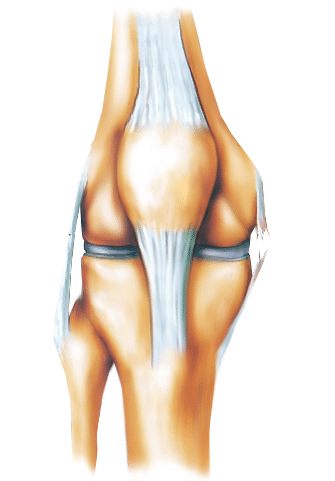What is an MCL Tear?

When you experience an MCL Tear, it’s due to your knee over-extending or bending beyond its ability.
The MCL (medial collateral ligament) is a band of tissue that runs along the inner edge of your knee. It attaches your shin and thigh bones to maintain strong and proper knee function when you move about.
Through basic care and rehab, the injury may heal on its own. However, if your injury is severe enough, it may require surgery.
Different types of MCL Injuries
- Grade 1 MCL injury: is the least severe. It means that your ligament has been stretched but not torn.
- Grade 2 MCL injury: when your ligament has been partially torn. Typically causing some instability in your knee.
- Grade 3 MCL injury: is the most severe type of ligament injury. It occurs when your ligament has been completely torn. Joint instability is common in a grade 3 MCL sprain.
Causes
It’s common for people who play sports to tear their MCL. This occurs when one player collides with another. Sometimes a tear happens if you are hit hard enough on the side of your knee. When hit hard, the MCL can stretch out far enough to strain or tear. However, sports players are not the only ones who can tear their MCL. Any hit or blow to the outer portion of the knee can experience this.
Symptoms
It’s very important for your doctor to examine your knee after an injury. However, MCL injuries are similar to symptoms of other knee problems.
Symptoms of an MCL tear may include:
- A popping sound upon injury
- A feeling that your knee is going to give out when you put weight on it
- Pain and tenderness along the inner part of your knee
- Locking or catching in the knee joint
- Swelling of the knee joint
How is an MCL Tear Treated?
First, conservative methods are offered, such as rest, medication and physical therapy. Then, if your recovery does not appear to be advancing surgery might be recommended.
Conservative Treatment
Conservative treatments are offered before surgical options are recommended. Those include:
- Icing for 15-20 minutes and repeating every hour
- Crutches to avoid putting weight on the knee
- Rest is always good to help speed up the healing
- Physical therapy can help regain normal movement
Surgical Options
If the MCL tear is so severe it is unlikely to heal, surgical options will be offered. Surgery involves reconnecting the ends of the ligament. However, depending on the injury you can reattach the muscles around the knee.
If you are experiencing an MCL tear and are looking for a top knee surgeon, call us 888-409-8006.
